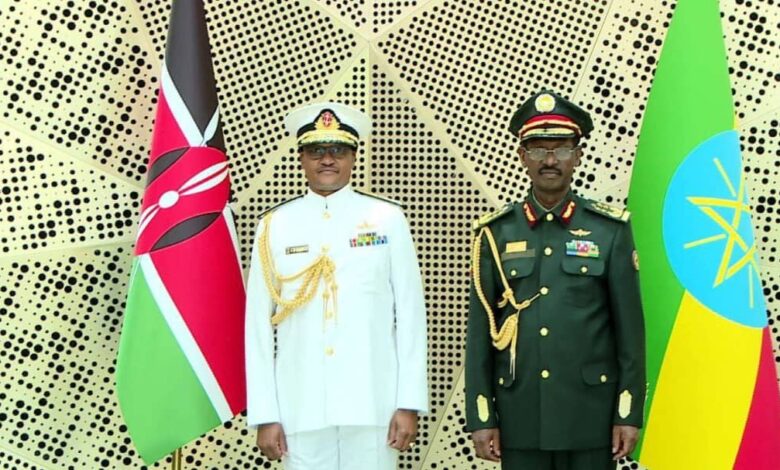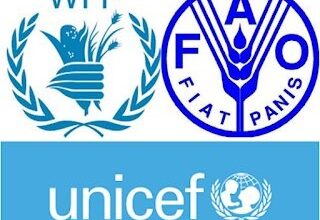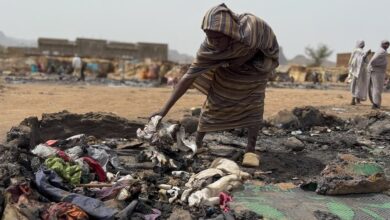Ethiopia and Kenya Sign Military Agreement Amid Regional Tensions

Ethiomonitor -Addis Ababa
September 25, 2025
Ethiopia and Kenya have signed a new military cooperation agreement, marking the second such accord between the two neighboring countries in 62 years.
Officials from both sides described the agreement as a significant step toward strengthening peace, security, and stability not only within their borders but also across the wider Horn of Africa region.
The agreement was signed in Addis Ababa by the Chief of Staff of the Ethiopian National Defence Forces (ENDF), Field Marshal Berhanu Jula, and the Chief of Staff of the Kenyan Defence Forces (KDF), General Charles Muriu Kahariri.
Both military leaders emphasized that the renewed partnership will enhance joint efforts against terrorism, cross-border crimes, and armed groups that continue to destabilize communities along the shared frontier.
General Kahariri reaffirmed Kenya’s commitment to closely collaborate with Ethiopia in future joint operations, stressing the importance of coordinated military strategies in addressing common security threats.
The Ethiopian Defence Forces also underscored that the new agreement represents an upgrade to existing security arrangements between the two countries.
This is not the first time Ethiopia and Kenya have formalized their military cooperation.
The two nations previously signed a similar pact in December 1963, the year Kenya gained independence.
Over the decades, both countries have cooperated on counterterrorism initiatives, including a mutual agreement to deny sanctuary to armed groups.
One of the primary threats along their border has been the Oromo Liberation Front (OLF), which operates mainly in Ethiopia’s Oromia region but has also been active in areas bordering Kenya.
The renewed agreement is expected to strengthen measures against the OLF’s armed wing and other non-state actors who exploit border vulnerabilities.
Beyond security, Ethiopia and Kenya have been steadily expanding their cooperation in areas such as trade, investment, infrastructure, and energy interconnections, with the military pact reinforcing a broader strategic partnership.
Meanwhile, the signing of the agreement comes at a time of renewed tensions involving Ethiopia’s Grand Ethiopian Renaissance Dam (GERD).
Egypt has expressed strong disapproval of Kenyan President William Ruto’s participation in the inauguration ceremony of the GERD.
Egypt’s ambassador to Kenya, Hatem Youssry Hosni, said on Wednesday, September 24, 2025, that Cairo considered the dam’s construction a violation of international law and an undermining of ongoing negotiations over the Nile River’s use.
“We were very disappointed that Kenya was represented at that event. Kenya was the only country from the Nile Basin present; Djibouti and Somalia are not part of the Nile Basin,” the ambassador stated.
While Egypt reiterated its respect for the rights of Nile Basin countries to use the river for electricity generation, it voiced concern that Kenya’s support for Ethiopia’s dam project could strain the delicate balance in regional water diplomacy.
The dual developments highlight both the opportunities and challenges facing Ethiopia-Kenya relations—on one hand, strengthening military cooperation, and on the other, navigating the wider geopolitical disputes over the Nile.





